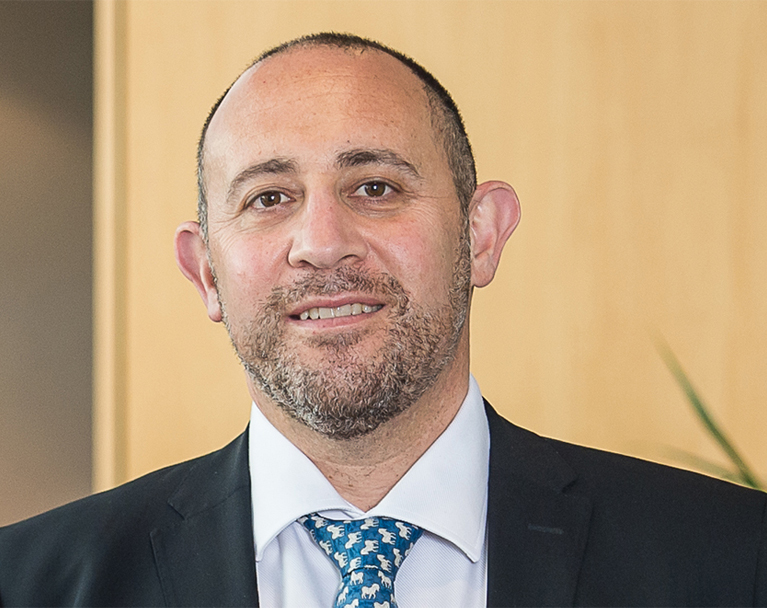Listen to the podcast
Get insights into sustainable investing from Investec, hydrogen-focused VC firm AP Ventures, the Bertha Centre for Social Innovation & Entrepreneurship and social enterprise Kusini Water.
In 1997, Arie de Geus, a European management writer, argued that companies die because their managers focus on producing goods and services and forget that their organisation’s true nature is that of a community of people.
That ‘community’ includes not just employees, but customers, investors, regulators and the general public. Never has it been more important to remember them.
The people who make or break businesses are rapidly waking up to the consequences of irresponsible practices in industry, namely social injustice and the destabilisation of our planet. Both cause suffering to humans and other sentient beings. Tolerance of the status quo is wearing thin, manifesting in several business-unfriendly guises:
- Revenue drops as customers disassociate from businesses causing harm
- Funding becomes scarce/expensive as investors worry about business sustainability
- Margins decline as regulation increases the cost of doing business
- Assets not considered sustainable (eg a coal mine) become stranded and lose their value
On balance, investors who acknowledge these risks and act accordingly are more likely to find their portfolios populated with companies that generate sustainable earnings growth, the secret sauce of life-changing investments.
The umbrella term for acting on that awareness is ‘responsible investing’ (RI). In practice, it has several variations.
The RI spectrum explained
“It’s best to view your responsible investing options on a spectrum. On the left-hand side we have exclusionary investing, where stocks that don’t align with your principles or beliefs are avoided. Next is ESG integration, where company valuations are influenced by each of the three factors. "
“Further right comes sustainable investing. It seeks exposure to businesses generating market-related or better returns, with neutral or positive externalities. Rounding out the spectrum is impact investing, where the intention is to create positive social or environmental change, with returns being somewhat secondary.
That was Barry Shamley, an equity fund manager at Investec Wealth & Investment and co-manager of the Investec Global Sustainable Equity Fund, during the first episode of Future Impact, a sustainable investing podcast jointly produced by Investec and Cliff Central.
It’s not an exact science, but the further right investors move on the spectrum outlined by Shamley, the more exposure they will have to businesses willing to forgo short-term gains in favour of long-term, sustainable earnings growth.
As the value of that trade-off is better understood, more investors are shuffling right.

You can have bad players with good ESG scores. They can manage ESG risk well on paper, but still create negative externalities like pollution or wage disparity. I think we’re going to see a move along the spectrum from ESG to sustainable investing.
Hydrogen as an example of sustainable investing
Most businesses have only just begun work to neutralise their negative externalities. That doesn’t immediately exclude them from the sustainable investing universe – their intentions and actions to reduce harmful practices matter.
But some businesses are born to make a positive impact, a breed of interest to Kevin Eggers, Founding Partner at AP Ventures: “We've reached a tipping point in the energy transition. And we're investing on the other side of that opportunity, in hydrogen. It will play a meaningful role in the decarbonisation economy. And with patient capital, we’ve found it quite easy to position ourselves for that eventuality.”
Businesses that are involved in the production, storage and use cases for green hydrogen are bona fide sustainable, given their obvious impact on reducing carbon emissions. In a South African context, the impact runs even deeper:
“With our sunshine and wind assets, green hydrogen becomes an export opportunity, to the benefit of a large value chain. It will also bring stability and resilience to our electricity grid and create employment,” said Eggers.
He talks straight about AP Ventures’ desire to generate a financial return from its hydrogen investments. The beauty is that if it’s successful, our environment and social fabric will experience gains, too. That’s a succinct example of sustainable investing.
The need for impact
"Does it really matter that retirement or pension funds achieve market-related returns or better if retirees find themselves caught in social conflict or without clean air? We need to consider impact investing that deliveradequate returns from investments that simultaneously mitigate against those risks.”
That was Misha Joshi, Senior Project Manager and Co-lead of the Innovative Finance Team at UCT’s Bertha Centre for Social Innovation and Entrepreneurship.

Before the 2021 riots in South Africa, investors may have dismissed the threat and consequences of social upheaval. It would be foolhardy to do so now.
Think that the clean air risk is mere hyperbole? More people die each year from air pollution than the official number of lives claimed by Covid-19 to date.
Impact investing is a natural bedfellow for younger investors – they have the most to lose if the worst climate change predictions materialise. Encouragingly, their investment clout is set to rise sharply.
“The generational wealth transfer from Baby Boomers to Millennials will be one of the largest in history. The latter are more aware of the threat that environmental, social and governance risks pose to their investments and lifestyle,” continued Joshi.
If they vote with their feet, impact investing is likely to gain in popularity, especially if it demonstrates an ability to generate adequate returns.
Water as an example
“The World Bank conducted a study in Malawi that showed people were willing to pay for water and energy, regardless of their income level, where it affords them the time and health to be productive and earn more.”
Murendeni Mafumo, Founder of Kusini Water and social entrepreneur, was highlighting an important impact investing dynamic – create value and you create a market. She passionately recounted the details of a recent water project doing just that.
A community with roughly 500 households relied on a weekly delivery of water by truck. Carrying the water home, in 25-litre cans, was arduous work. Sometimes the cans were stolen or not filled.
Kusini installed a tech-driven water treatment facility at a nearby river, powered by solar and cared for by a community-elected committee. With reliable access to water, people in the community can spend their energy on income-generating activities, a portion of which will, in the future, be paid to Kusini to ensure their water keeps flowing.
“The world is becoming more conscious of the fact that we don't exist in a silo, but in a connected society reliant on nature. When you provide water to a community, for example, its adults become more employable, and their kids can spend more time in school. In the long run, that’s good for business and investors, right?”
Arie de Geus would have concurred.
Receive Focus insights straight to your inbox






